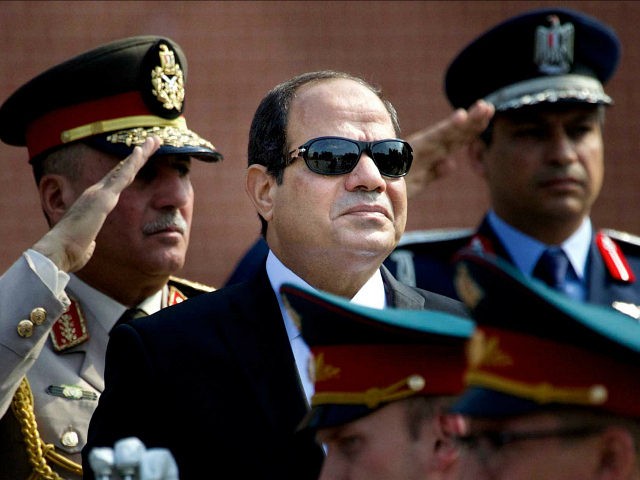JAFFA, Israel – A media war erupted between Egypt and Saudi Arabia after Egypt voted in favor of a Russian proposal during the last UN Security Council session on Syria.
Saudi Arabia and its allies expressed deep disappointment that the Egyptian President Abdul Fatah al-Sissi (pictured) stood with Russia at the UNSC despite the substantial financial aid that Egypt receives from Saudi Arabia, particularly after the historic visit of Saudi King Salman to Egypt a few months ago.
Saudi Arabia’s UN ambassador criticized the Egyptian vote as painful. The representatives of other Arab nations also slammed Egypt and the Sissi government for the vote.
In response to the Egyptian vote, the Saudi oil company Aramco announced that it would end the supply of Saudi oil to Egypt, leading the Egyptian government to seek alternatives in Kuwait, Algeria and even Venezuela.
Lamis Alhadidi, a prominent Egyptian journalist affiliated with the Sissi administration, responded with a rebuke of Saudi Arabia, saying, “Salman, you don’t punish Sissi and you don’t restrict his hand.”
Another Egyptian journalist, Ibrahim Issa, criticized Saudi Arabia and blamed the kingdom for causing the multiple crises currently engulfing the Arab nations. Issa claimed on his television show that “everything that’s happening in Syria, in Iraq, in Yemen – wars and disasters – this is all the creation of the Wahabist policy. Saudi Arabia is part of everything that’s happening.”
The journalist Wael Alabrashy, also affiliated with the Egyptian government, was outraged over the claims of the Saudi ambassador to the UN that it hurt to see countries like Malaysia and Senegal supporting a French proposal calling for a ceasefire while Egypt chose instead to support the Russian proposal. Alabrashy demanded Saudi Arabia’s representatives apologize for the ambassador’s comments.
“Egypt’s position is independent,” said Alabrashy. “The Saudis have the right to take their own stance, but no one should be preaching to us with the claim that Malaysia and Senegal supported the Arab stance more than Egypt did, as the Saudi ambassador said.”
Meanwhile, some opponents of the Egyptian government and supporters of Saudi Arabia began using a hashtag on social media: “Egypt_voted_for_Russia’s_proposal.”
One user named Waleed posted a video from a discussion on Saudi television in which the pundits attacked Egypt and claimed that the country was up for purchase: “Turkey stood next to us because we didn’t try to buy her for a little rice. But those who we tried to buy with a little rice sold out in New York for a few lentils.”
#مصر_تصوت_لصالح_المشروع_الروسي
#ايقاف_امداد_مصر_بالنفطاللي تشتريه بالرز يبيعك بفول 👌🏻
https://t.co/D8pPCDIHXY— Waleed 🖤🇸 (@waleedpq) October 10, 2016
Another user named Reem posted, “How do we expect loyalty from Sissi who violated the oath, who betrayed Allah, his homeland and his presidency? How do you expect from someone who did what he did to the Egyptians to sympathize with the Syrians?”
https://twitter.com/ReemAlatef/status/785645810172227584
Khaled Alalkami posted that “Egypt’s next extortion will be an attempt to draw closer to Iran. Egypt supported the Iraqi president El Maliki, she supported the Shia militias, she supported Assad’s army and she didn’t condemn the law passed by Congress (allowing for Saudi Arabia to be sued by victims of the 9/11 terror attack) and at the moment she supports the Russian-Iranian initiative.”
الإبتزاز القادم ورقة التقارب مع إيران
.#مصر_تصوت_لصالح_المشروع_الروسي https://t.co/Mgax8vrLWW— خالد العلكمي (@AlkamiK) October 10, 2016
Muhammad Albishr painted a picture of Egypt’s vote in the UNSC as a position that “opposes all the values of brotherhood, Islam, Arabs and humanity. This is support for the Zionist stance that wants to see Assad survive.”
https://twitter.com/m_s_albishr/status/785228126406279173

COMMENTS
Please let us know if you're having issues with commenting.